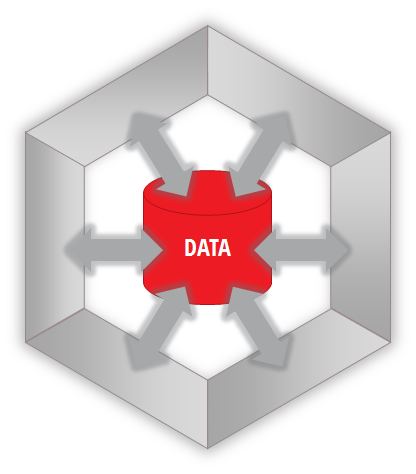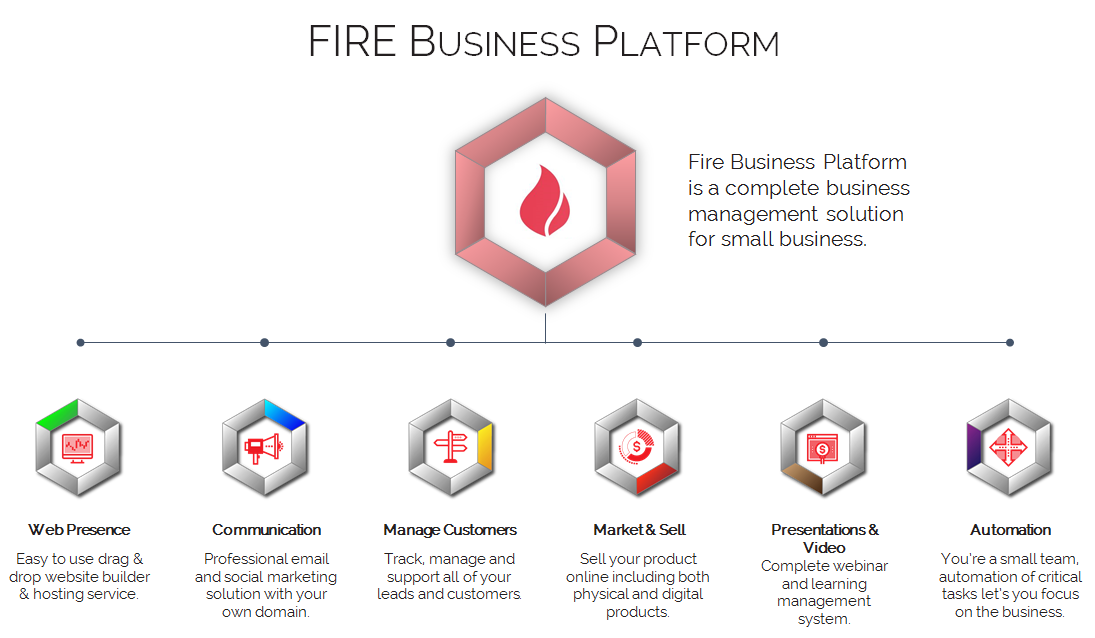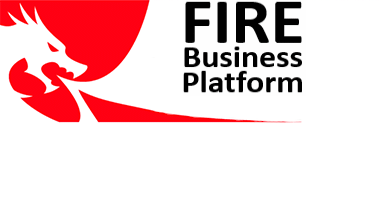Single point solutions are not the future
As an entrepreneur, you have an urgency to get your business up and running as fast as possible. Single point solutions are not likely the best answer for your business. Finding the quickest path to revenue generation is key to your survival.
In the rush to get things going, you might be inclined to choose from many single point solutions for one or more of your immediate business needs. It’s also likely that you don’t have a lot of capital at this point in the game to afford much more than the “freemium” versions of most of the single point business solutions. And of course, the juicy features are always only available in the paid version of the tool.
Let’s face it, there are a ton of providers of single-point solutions out there who all want to provide a part of the various technology needs of running your business:
- Domain registration
- Website & email hosting
- Landing pages and sales funnels
- Contact management
- Customer relationship management (CRM)
- List management and email marketing
- Webinars & online conferences
- Online scheduling and calendar management
- Online learning and mastermind group management
- eCommerce, product catalogs and shopping carts
- Merchant and payment management
Tools alone are not your friend
The single point solutions will try to sell you on their ability to deliver the best and most important features.
The single point solutions will try to sell you on the fact that they are cheaper than an all-in-one platform. (NOTE that individually, this may be true, but once you factor in the cost of each tool, plus the investment for integration. This math doesn’t work in the favor of point solutions).
The single point solutions will try to sell you on the idea that it’s not possible to create a viable all-in-one solution that isn’t hugely over complicated and hard to use.
But ask yourself what you really need as an entrepreneur launching a new business?
- Do you have time to setup and learn how to use each tool?
- Do you have the skills to setup integrations between the various single-point solutions?
- Most single point solutions have to differentiate themselves by having the deepest function set. Do you really need all of the extensive functionality or do you really just need the minimum to get your business running and generating revenue?
You don’t want to spend your time with integration nightmaresUnless your background is in IT or you’re an engineer, who wants to deal with all of the integration issues. True, many of the point solutions setup integrations between their tools and other tools which can use their data, but it only takes one tool in your application tool set to release an new incompatible version and break your business. Now you’re left chasing down the problem with multiple support organizations, each of whom point the finger at the other one. Of course you can always pay your nephew to setup and maintain your solution stack, but now you’re at the mercy of yet another variable.
Point solutions force you to learn multiple interfacesOf course every software vendor thinks that they have the best in class solution with a unique set of workflow and processes. When you use multiple vendor solutions, you’re forced to (re)learn the user interface each time that you go in to perform some action. And as you add new team members to your organization, you need to go through the various point solutions and setup each user multiple times.
And let’s not forget the fact that you follow best practice and maintain unique passwords for each point solution. You need to login into each solution multiple times each day.
Your data will end up all over the placeHow many different contact lists do you have today? I’ll venture a guess that you have multiple lists of current contacts and potential clients spread across your smart phone, your personal email and various prior business contact lists. How easy is it to combine and de-duplicate those various lists?
Now image a year into the future when your new business is off and growing. How are you going to manage the data across a bunch of different point solutions? Do you want to spend the time to export, merge, dedupe and import all of your sales and customer data?
With a collection of single point solutions, it’s up to you to manage the integrations between the tools. It’s up to you to check to see if data is correct.

The most efficient architecture for managing data happens when all of your data is stored in a single place and accessible by all of the various applications.
This prevents data from getting lost or out of sync between applications.
With an integrated platform, all of the data is stored and managed in a single place. That means a single contact record for each customer, along with all of their historical data and purchase history. A platform wins hands down over any collection of point solutions when you look at data quality.
You’ll pay more for a point solution
When it comes to the bottom line, cash flow is key early in the life of a small business or a start up. If you have no cash, using a variety of free (or freemium) point solutions may be your only recourse. In this case, you’ll pay with time, in the form of the time and energy that you’ll spend learning, setting up and integrating all of the tools. In the end, it may not be everything you need since many single point solutions reserve their premium features for the paid versions.

FIREBusinessPlatform was designed to provide all of the capabilities necessary to run a small business. It is all completely integrated from end to end.
The business automation in FIREBusinessPlatform helps to multiple your effort and gives you back precious time that you use to grow your business and service your customers.

